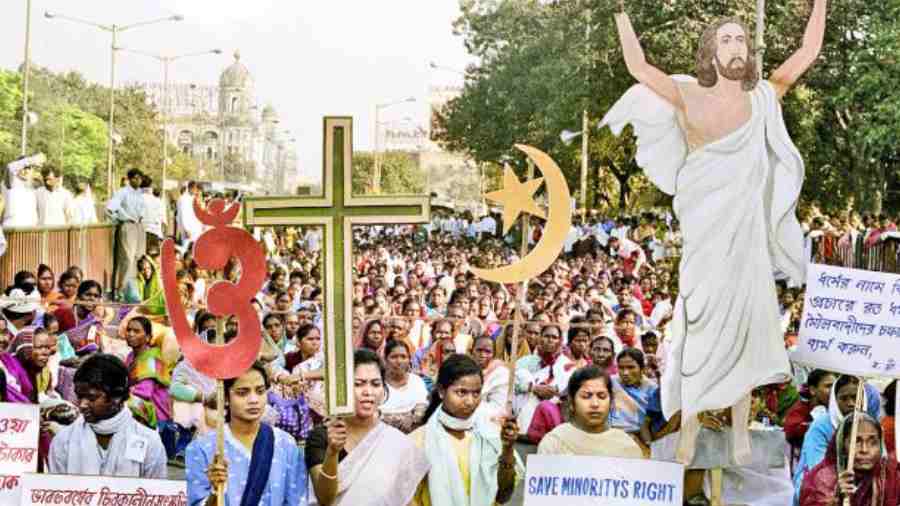Religious conversion, when accompanied by force, is unacceptable. It violates the constitutional principle that upholds the citizens’ right to freely practise their chosen faith. Coercive conversion also infringes on their right to privacy. Exhaustive deterrents are thus in place to prevent such mischief. What is concerning though is that some of these deterrents, such as the clutch of anti-conversion laws passed by state governments, have been found to be far from perfect. For instance, the conviction rate under these stringent — excessive? — regulations seems to be poor. Uttar Pradesh — it ‘inspired’ several Bharatiya Janata Party-ruled states to frame similar laws — is one example. There have also been charges of the law’s application being uneven. Reports from Bastar, Chhattisgarh, state that adivasi families have faced wanton violence to expedite their conversion to the majority religion. Chhattisgarh has its own version of the anti-conversion law: yet, coercion exists. It now appears that the gamut of anti-conversion legislations has drawn international criticism. In a new report, the United States Commission on International Religious Freedom stated that anti-conversion laws passed by states violate the protections guaranteed by such global conventions as the Universal Declaration of Human Rights and the International Covenant on Civil and Political Rights, both of which were endorsed by India.
Could it be that a different India had been a signatory to these covenants? After all, the present regime has been dismissive of the USCIRF’s frequent criticisms, be they on India slipping on registers of religious freedom or, now, on its anti-conversion laws. This strategy seems to fit well with the BJP’s muscular rhetoric of shrill nationalism and its charge of the West’s complicity in conspiracies to defame India. But thunderous responses on the part of the leadership, curated with an eye on the domestic vote bank, are unlikely to stop the scrutiny — domestic or otherwise. The real problem is that political and ideological imperatives have influenced the drafting of such legislations. The discourse on conversion has another curious dimension. Unease — public or even judicial — with the spectre has not corresponded with demands for transparent information. The persistent allegations of forceful conversion, usually directed against minorities, must be examined in the light of robust data. But is there a mechanism to make the data immune to political chicanery?











